Open Access Policies and Mandates
Updated on 26 July 2015
Theo: https://www.openaire.eu/oa-policies-mandates
Bài được cập nhật trên Internet ngày: 26/07/2015
Xem thêm: Khoa học Mở - Open Science
Các chính sách Truy cập Mở ở Liên minh châu Âu
Có những lợi ích đáng kể về kinh tế, xã hội và giáo dục để làm cho các kết quả đầu ra nghiên cứu là sẵn sàng không có các rào cản về tài chính, pháp lý và kỹ thuật để truy cập. Truy cập mở kết hợp nghiên cứu của quốc gia vào một mạng tương hợp được của tri thức toàn thế giới, làm gia tăng tác động của nghiên cứu quốc gia, cung cấp các mối quan hệ đối tác nghiên cứu mới, và loại bỏ sự cô lập về nghề nghiệp. Xã hội như một tổng thể sẽ hưởng lợi vì nghiên cứu có hiệu quả hơn và có hiệu lực hơn, phân phối các kết quả đầu ra tốt hơn và nhanh hơn cho tất cả mọi người. Truy cập mở tăng cường cho các nền kinh tế thông qua việc phát triển cơ sở khoa học quốc gia mạnh và độc lập. Có bằng chứng ngày càng gia tăng rằng các quốc gia cũng hưởng lợi vì Truy cập Mở làm gia tăng ảnh hưởng của nghiên cứu theo đó họ đầu tư tiền của nhà nước và vì thế có sự hoàn vốn đầu tư tốt hơn [1].
Mục đích của Ủy ban châu Âu là để tối ưu hóa ảnh hưởng của nghiên cứu khoa học được cấp vốn nhà nước, cả ở mức châu Âu (FP7, Horizon 2020) và ở mức các Quốc gia Thành viên. Truy cập mở là một trong các công cụ để cải thiện hiệu năng kinh tế và nâng cao năng lực cạnh tranh thông qua tri thức của châu Âu. Các kết quả của nghiên cứu được cấp vốn nhà nước nên được phổ biến rộng rãi hơn và nhanh hơn, vì lợi ích của các nhà nghiên cứu, giới công nghiệp và các công dân có tính đổi mới. Truy cập mở cũng thúc đẩy tính trực quan nghiên cứu của châu Âu, và đặc biệt chào cho các doanh nghiệp vừa và nhỏ (SME) sự truy cập tới nghiên cứu mới nhất để sử dụng.
Chiến lược của Ủy ban là để phát triển và triển khai truy cập mở cho các kết quả nghiên cứu từ các dự án được các Chương trình Khung Nghiên cứu của EU, ấy là FP7 và Horizon 2020. Các yêu cầu truy cập mở dựa vào sự hỗ trợ cân bằng cho cả ‘Truy cập mở Xanh’ (Green Open Access) (truy cập mở tức thì hoặc có độ trễ được cung cấp thông qua sự tự lưu trữ) và ‘Truy cập mở Vàng’ (Gold Open Access) (truy cập mở tức thì được một nhà xuất bản cung cấp). Đọc thêm về truy cập mở trong Horizon 2020 ở đây.
Chiến lược của Ủy ban cũng là để khuyến khích các sáng kiến quốc gia ở mức các Quốc gia Thành viên và đóng góp cho sự phối hợp trong Khu vực Nghiên cứu của châu Âu (European Research Area). Ủy ban cũng cấp vốn cho các hoạt động nghiên cứu và hỗ trợ trong lĩnh vực truy cập mở. Trong quá trình của Horizon 2020, Ủy ban sẽ tiếp tục lôi kéo sự tham gia của các bên tham gia đóng góp, trong khi tiếp tục khuyến khích văn hóa chia sẻ các xuất bản phẩm khoa học và, với sự tôn trọng các quyenf của tất cả các bên liên quan, dữ liệu nghiên cứu [2].
Khuyến cáo về truy cập tới và bảo tồn thông tin khoa học của Ủy ban vào tháng 7/2012 nêu rằng “Các chính sách về truy cập mở đối với các kết quả nghiên cứu khoa học nên áp dụng cho tất cả các nghiên cứu nhận được vốn cấp nhà nước. Các chính sách như vậy được kỳ vọng cải thiện các điều kiện tiến hành nghiên cứu bằng việc giảm thiểu sự đúp bản các nỗ lực và bằng việc tối thiểu hóa thời gian bỏ ra tìm kiếm thông tin và truy cập nó. Điều này sẽ tăng tốc sự tiến bộ khoa học và làm cho dễ dàng hơn để kết hợp xuyên khắp và vượt ra khỏi EU. Các chính sách như vậy cũng sẽ đáp ứng được lời kêu gọi trong cộng đồng khoa học vì sự truy cập lớn hơn tới thông tin khoa học”. Nó cũng quảng bá truy cập mở như là “đặc tính chủ chốt trong các chính sách của các Quốc gia Thành viên vì nghiên cứu và đổi mới có trách nhiệm“ và khuyến cáo các Quốc gia Thành viên phát triển các chính sách của họ về truy cập mở tới các xuất bản phẩm khoa học [3].
Hơn nữa, Khuyến cáo đó bao trùm truy cập mở tới dữ liệu nghiên cứu khoa học mà “giúp cải thiện chất lượng dữ liệu, giảm nhu cầu đúp bản nghiên cứu, tăng tốc sự tiến bộ khoa học và giúp đấu tranh chống sự gian lận” [3]. Trong báo cáo cuối cùng của mình “Cưỡi sóng: Làm thế nào châu Âu có thể giành được từ cơn thủy triều đang lên các dữ liệu khoa học” [4] vào tháng 10/2010, Nhóm các Chuyên gia Cao cấp về Dữ liệu Khoa học (High Level Expert Group on Scientific Data) đã nhấn mạnh tầm quan trọng sống còn của việc chia sẻ và bảo tồn các dữ liệu tin cậy được sản xuất trong quá trình khoa học. Ủy ban cân nhắc hành động chính sách khẩn cấp về truy cập tới dữ liệu và khuyến cáo nó cho các Quốc gia Thành viên. Vào tháng 10/2013 Ủy ban đã xuất bản “Báo cáo của Ủy ban châu Âu - Tư vấn Công khai về Dữ liệu Nghiên cứu Mở” [5] với vài khuyến cáo và con đường đi ở phía trước.
Ủy ban khuyến khích đối thoại nhiều bên tham gia đóng góp ở các mức quốc gia, châu Âu và quốc tế về cách để thúc đẩy truy cập mở tới và bảo tồn thông tin khoa học. Những người tham gia nên đặc biệt quan tâm tới:
các cách thức liên kết các xuất bản phẩm tới các dữ liệu nằm bên dưới;
các cách thức cải thiện sự truy cập và giữ cho giá thành được kiểm soát, như, thông qua các thương lượng chung với các nhà xuất bản;
các chỉ số nghiên cứu mới và các phép phân tích xung quanh không chỉ các xuất bản phẩm khoa học, mà còn cả các tập hợp dữ liệu và các dạng kết quả đầu ra khác từ hoạt động nghiên cứu và hiệu năng của các nhà nghiên cứu riêng rẽ;
các hệ thống và các cấu trúc thưởng mới; và
thúc đẩy các nguyên tắc và triển khai truy cập mở ở mức quốc tế, đặc biệt trong ngữ cảnh các sáng kiến hợp tác song phương, đa phương và quốc tế. [3]
Châu Âu Khoa học (Science Europe) - một hiệp hội của các Tổ chức Cấp vốn Nghiên cứu châu Âu và các Tổ chức Thực hiện Nghiên cứu - đã đưa ra 2 tuyên bố: "Các nguyên tắc về Chuyển đổi sang Truy cập Mở tới các Xuất bản phẩm Nghiên cứu" (tháng 4/2013) [6] và “Các cơ hội Truy cập Mở cho Nhân văn" (tháng 11/2013) [7] ôm lấy truy cập mở như là con đường phía trước.
Một nghiên cứu được Ủy ban cấp vốn gợi ý rằng truy cập mở đang đạt được đỉnh điểm, với khoảng 50% các tài liệu khoa học được xuất bản năm 2011 bây giờ sẵn sàng không mất tiền [8]. “Đỉnh điểm cho truy cập mở (hơn 50% các tài liệu sẵn sàng không mất tiền) đã đạt được ở vài quốc gia, bao gồm Brazil, Thụy Sỹ, Hà Lan, Mỹ, cũng như trong nghiên cứu y sinh học, sinh học, và toán và thống kê”[9].
Các chính phủ đã bắt đầu quan tâm tới truy cập mở ngoài mong đợi đảm bảo rằng nghiên cứu mà họ cấp tiền với tới được khán thính phòng lớn nhất có thể, cũng như ngoài sự thừa nhận lãng phí các tài nguyên nhà nước là kết quả từ hệ thống cũ theo đó những người đóng thuế trả tiền một lần cho nghiên cứu và trả tiền lần thứ 2 để truy cập các kết quả của nó.
MELIBEA – thư mục các chính sách Truy cập Mở của các cơ sở liệt kê 88 chỉ thị của các nhà cấp vốn yêu cầu các nhà nghiên cứu cho tới SHERPA JULIET liệt kê 94 chính sách Truy cập Mở của các nhà cấp vốn nghiên cứu và ROARMAP: Đăng ký các Chính sách Lưu trữ Tư liệu các Kho Truy cập Mở (Registry of Open Access Repository Material Archiving Policies) liệt kê 85 chỉ thị của các nhà cấp vốn (ở Úc, Áo, Bỉ, Canada, Đan Mạch, Ủy ban châu Âu và Hội đồng Nghiên cứu châu Âu, Đức, Hungary, Iceland, Ireland, Ý, Nauy, Peru, Singapore, Tây Ban Nha, Thụy Điển, Thụy Sỹ, Vương quốc Anh và Mỹ).
Nếu bạn có quan tâm trong việc giới thiệu chính sách truy cập mở, hãy xem vài trong số các khuyến cáo trong các tài liệu sau: “Chỉ dẫn về các thực hành tốt cho các chính sách truy cập mở của đại học” của Stuart Shieber và Peter Suber, Dự án Truy cập Mở của Harvard [10]; Các chỉ dẫn của MedOANet về Triển khai các chính sách truy cập mở cho việc thực hiện nghiên cứu và các tổ chức cấp vốn nghiên cứu [11]; “Bộ công cụ Chính sách Truy cập Mở" được Kho Kho học Truy cập Mở của Bồ Đào Nha - RCAAP (Portugal Open Access Scientific Repository) xuất bản [12]; và “Các chỉ dẫn Chính sách để Phát triển và Thúc đẩy Truy cập Mở” của Alma Swan, được UNESCO ủy quyền [13].
Các tham khảo
[1] John Houghton, Centre for Strategic Economic Studies, Victoria University, Melbourne (2009): Open Access – What are the economic benefits? A comparison of the United Kingdom, Netherlands and Denmark
[2] European Commission/Open Access
[3] July 2012 Commission's Recommendation on access to and preservation of scientific information
[4] Riding the wave: How Europe can gain from the rising tide of scientific data
[5] October 2013 Report of the European Commission – Public Consultation on Open Research Data
[6] Science Europe Position Statement "Principles on the Transition to Open Access to Research Publications" (April 2013)
[7] Science Europe Position Statement “Open Access Opportunities for the Humanities" (November 2013)
[10] Guide to good practices for university open-access policies by Stuart Shieber and Peter Suber, the Harvard Open Access Project
[12] Open Access Policy Kit produced by RCAAP (Portugal Open Access Scientific Repository)
[13] Policy Guidelines for the Development and Promotion of Open Access by Alma Swan, commissioned by UNESCO
Open Access Policies in the European Union
There are significant economic, social and educational benefits to making research outputs available without financial, legal and technical barriers to access. Open access incorporates national research into an interoperable network of global knowledge, increases national research impact, provides new research partnerships, and removes professional isolation. Society as a whole benefits because research is more efficient and more effective, delivering better and faster outcomes for all. Open access strengthens economies through developing a strong and independent national science base. There is growing evidence that countries also benefit because Open access increases the impact of the research in which they invest public money and therefore there is a better return on investment [1].
The European Commission’s objective is to optimise the impact of publicly-funded scientific research, both at European level (FP7, Horizon 2020) and at Member State level. Open access is one of the tools to enhance Europe's economic performance and improve the capacity to compete through knowledge. Results of publicly-funded research should be disseminated more broadly and faster, for the benefit of researchers, innovative industry and citizens. Open access can also boost the visibility of European research, and in particular offer small and medium-sized enterprises (SMEs) access to the latest research for utilisation.
The Commission’s strategy is to develop and implement open access to research results from projects funded by the EU Research Framework Programmes, namely FP7 and Horizon 2020. Open access requirements are based on a balanced support to both 'Green open access' (immediate or delayed open access that is provided through self-archiving) and 'Gold open access' (immediate open access that is provided by a publisher). Read more about open access in Horizon 2020 here.
The Commission’s strategy is also to encourage national initiatives at Member State level and contribute to their co-ordination within the European Research Area. The Commission also provides funds for research and supporting activities in the area of open access. During the course of Horizon 2020, the Commission will continue to engage with stakeholders, while continuing to encourage a culture of sharing scientific publications and, with due respect to the rights of all concerned, research data. [2]
July 2012 Commission's Recommendation on access to and preservation of scientific information states that “Policies on open access to scientific research results should apply to all research that receives public funds. Such policies are expected to improve conditions for conducting research by reducing duplication of efforts and by minimising the time spent searching for information and accessing it. This will speed up scientific progress and make it easier to cooperate across and beyond the EU. Such policies will also respond to calls within the scientific community for greater access to scientific information.” It also promotes open access as “a key feature of Member States’ policies for responsible research and innovation” and recommends to Member States to develop their policies on open access to scientific publications. [3]
In addition, the Recommendation covers open access to scientific research data that “helps to enhance data quality, reduces the need for duplication of research, speeds up scientific progress and helps to combat scientific fraud.” [3] In its final report “Riding the wave: How Europe can gain from the rising tide of scientific data” [4] in October 2010, the High Level Expert Group on Scientific Data emphasised the critical importance of sharing and preserving reliable data produced during the scientific process. The Commission considers urgent policy action on access to data and recommends it to Member States.” In October 2013 it released a “Report of the European Commission - Public Consultation on Open Research Data” [5] with some recommendations and the way forward.
The Commission encourages a multi-stakeholder dialogue at national, European and international level on how to foster open access to and preservation of scientific information. Participants should in particular look at:
ways of linking publications to the underlying data;
ways of improving access and keeping costs under control, e.g. through joint negotiations with publishers;
new research indicators and bibliometrics encompassing not only scientific publications but also datasets and other types of output from research activity and the individual researcher’s performance;
new reward systems and structures; and
the promotion of open access principles and implementation at international level, especially in the context of bilateral, multilateral and international cooperation initiatives. [3]
Science Europe – an association of European Research Funding Organisations and Research Performing Organisations – released two position statements: "Principles on the Transition to Open Access to Research Publications" (April 2013) [6] and “Open Access Opportunities for the Humanities" (November 2013) [7] embracing open access as the way forward.
A study funded by the Commission suggests that open access is reaching the tipping point, with around 50% of scientific papers published in 2011 now available for free. [8] “The tipping point for open access (more than 50% of the papers available for free) has been reached in several countries, including Brazil, Switzerland, the Netherlands, the US, as well as in biomedical research, biology, and mathematics and statistics.” [9]
Governments have begun to take an interest in open access out of a desire to ensure that the research which they fund reaches the largest possible audience, as well as out of a recognition of the waste of public resources which results from the old system in which taxpayers pay once for research and a second time for access to its results.
MELIBEA – a directory of institutional Open Access policies lists 88 funders’ mandates requiring researchers to SHERPA JULIET lists 94 research funders’ Open Access policies and ROARMAP: Registry of Open Access Repository Material Archiving Policies lists 85 funder mandates (in Australia, Austria, Belgium, Canada, Denmark, European Commission and European Research Council, Germany, Hungary, Iceland, Ireland, Italy, Norway, Peru, Singapore, Spain, Sweden, Switzerland, United Kingdom and United States).
If you are interested in introducing an open access policy see some of recommendations in the following documents: “Guide to good practices for university open-access policies” by Stuart Shieber and Peter Suber, the Harvard Open Access Project [10]; MedOANet Guidelines for Implementing open access policies for research performing and research funding organizations [11]; “Open Access Policy Kit" produced by RCAAP (Portugal Open Access Scientific Repository) [12]; and “Policy Guidelines for the Development and Promotion of Open Access” by Alma Swan, commissioned by UNESCO [13].
References
[1] John Houghton, Centre for Strategic Economic Studies, Victoria University, Melbourne (2009): Open Access – What are the economic benefits? A comparison of the United Kingdom, Netherlands and Denmark
[2] European Commission/Open Access
[3] July 2012 Commission's Recommendation on access to and preservation of scientific information
[4] Riding the wave: How Europe can gain from the rising tide of scientific data
[5] October 2013 Report of the European Commission – Public Consultation on Open Research Data
[6] Science Europe Position Statement "Principles on the Transition to Open Access to Research Publications" (April 2013)
[7] Science Europe Position Statement “Open Access Opportunities for the Humanities" (November 2013)
[10] Guide to good practices for university open-access policies by Stuart Shieber and Peter Suber, the Harvard Open Access Project
[12] Open Access Policy Kit produced by RCAAP (Portugal Open Access Scientific Repository)
[13] Policy Guidelines for the Development and Promotion of Open Access by Alma Swan, commissioned by UNESCO
Dịch: Lê Trung Nghĩa
Ý kiến bạn đọc
Những tin mới hơn
Những tin cũ hơn
Blog này được chuyển đổi từ http://blog.yahoo.com/letrungnghia trên Yahoo Blog sang sử dụng NukeViet sau khi Yahoo Blog đóng cửa tại Việt Nam ngày 17/01/2013.Kể từ ngày 07/02/2013, thông tin trên Blog được cập nhật tiếp tục trở lại với sự hỗ trợ kỹ thuật và đặt chỗ hosting của nhóm phát triển...
 DigComp 3.0: Khung năng lực số châu Âu
DigComp 3.0: Khung năng lực số châu Âu
 Các bài toàn văn trong năm 2025
Các bài toàn văn trong năm 2025
 Các bài trình chiếu trong năm 2025
Các bài trình chiếu trong năm 2025
 Các lớp tập huấn thực hành ‘Khai thác tài nguyên giáo dục mở’ tới hết năm 2025
Các lớp tập huấn thực hành ‘Khai thác tài nguyên giáo dục mở’ tới hết năm 2025
 Tập huấn thực hành ‘Khai thác tài nguyên giáo dục mở’ cho giáo viên phổ thông, bao gồm cả giáo viên tiểu học và mầm non tới hết năm 2025
Tập huấn thực hành ‘Khai thác tài nguyên giáo dục mở’ cho giáo viên phổ thông, bao gồm cả giáo viên tiểu học và mầm non tới hết năm 2025
 Các tài liệu dịch sang tiếng Việt tới hết năm 2025
Các tài liệu dịch sang tiếng Việt tới hết năm 2025
 Loạt bài về AI và AI Nguồn Mở: Công cụ AI; Dự án AI Nguồn Mở; LLM Nguồn Mở; Kỹ thuật lời nhắc;
Loạt bài về AI và AI Nguồn Mở: Công cụ AI; Dự án AI Nguồn Mở; LLM Nguồn Mở; Kỹ thuật lời nhắc;
 Tổng hợp các bài của Nhóm các Nhà cấp vốn Nghiên cứu Mở (ORFG) đã được dịch sang tiếng Việt
Tổng hợp các bài của Nhóm các Nhà cấp vốn Nghiên cứu Mở (ORFG) đã được dịch sang tiếng Việt
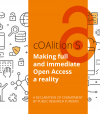 Tổng hợp các bài của Liên minh S (cOAlition S) đã được dịch sang tiếng Việt
Tổng hợp các bài của Liên minh S (cOAlition S) đã được dịch sang tiếng Việt
 Năm Khoa học Mở & Chuyển đổi sang Khoa học Mở - Tổng hợp các bài liên quan
Năm Khoa học Mở & Chuyển đổi sang Khoa học Mở - Tổng hợp các bài liên quan
 Bàn về 'Lợi thế của doanh nghiệp Việt là dữ liệu Việt, bài toán Việt' - bài phát biểu của Bộ trưởng Nguyễn Mạnh Hùng ngày 21/08/2025
Bàn về 'Lợi thế của doanh nghiệp Việt là dữ liệu Việt, bài toán Việt' - bài phát biểu của Bộ trưởng Nguyễn Mạnh Hùng ngày 21/08/2025
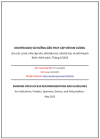 ‘KHUYẾN NGHỊ VÀ HƯỚNG DẪN TRUY CẬP MỞ KIM CƯƠNG cho các cơ sở, nhà cấp vốn, nhà bảo trợ, nhà tài trợ, và nhà hoạch định chính sách’ - bản dịch sang tiếng Việt
‘KHUYẾN NGHỊ VÀ HƯỚNG DẪN TRUY CẬP MỞ KIM CƯƠNG cho các cơ sở, nhà cấp vốn, nhà bảo trợ, nhà tài trợ, và nhà hoạch định chính sách’ - bản dịch sang tiếng Việt
 50 công cụ AI tốt nhất cho năm 2025 (Đã thử và kiểm nghiệm)
50 công cụ AI tốt nhất cho năm 2025 (Đã thử và kiểm nghiệm)
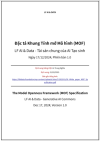 ‘Đặc tả Khung Tính mở Mô hình (MOF)’ của LF AI & Data - Tài sản chung của AI Tạo sinh - bản dịch sang tiếng Việt
‘Đặc tả Khung Tính mở Mô hình (MOF)’ của LF AI & Data - Tài sản chung của AI Tạo sinh - bản dịch sang tiếng Việt
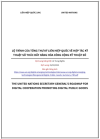 ‘LỘ TRÌNH CỦA TỔNG THƯ KÝ LIÊN HIỆP QUỐC VỀ HỢP TÁC KỸ THUẬT SỐ THÚC ĐẨY HÀNG HÓA CÔNG CỘNG KỸ THUẬT SỐ’ - bản dịch sang tiếng Việt
‘LỘ TRÌNH CỦA TỔNG THƯ KÝ LIÊN HIỆP QUỐC VỀ HỢP TÁC KỸ THUẬT SỐ THÚC ĐẨY HÀNG HÓA CÔNG CỘNG KỸ THUẬT SỐ’ - bản dịch sang tiếng Việt
 AI trong TVET - Một vài gợi ý triển khai trong thực tế
AI trong TVET - Một vài gợi ý triển khai trong thực tế
 Tài sản chung kỹ thuật số và Hàng hóa Công cộng Kỹ thuật số - Tìm thấy nền tảng chung cho các nhà hoạch định chính sách
Tài sản chung kỹ thuật số và Hàng hóa Công cộng Kỹ thuật số - Tìm thấy nền tảng chung cho các nhà hoạch định chính sách
 Tọa đàm ‘Vai trò của Tài nguyên Giáo dục Mở trong chuyển đổi số giáo dục đại học’ tại Viện Chuyển đổi số và Học liệu - Đại học Huế, ngày 12/09/2025
Tọa đàm ‘Vai trò của Tài nguyên Giáo dục Mở trong chuyển đổi số giáo dục đại học’ tại Viện Chuyển đổi số và Học liệu - Đại học Huế, ngày 12/09/2025
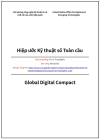 ‘Hiệp ước Kỹ thuật số Toàn cầu’ của Liên hiệp quốc - bản dịch sang tiếng Việt
‘Hiệp ước Kỹ thuật số Toàn cầu’ của Liên hiệp quốc - bản dịch sang tiếng Việt
 12 dự án AI Nguồn Mở hàng đầu để bổ sung vào kho công nghệ của bạn. 11. Hugging Face Transformers
12 dự án AI Nguồn Mở hàng đầu để bổ sung vào kho công nghệ của bạn. 11. Hugging Face Transformers
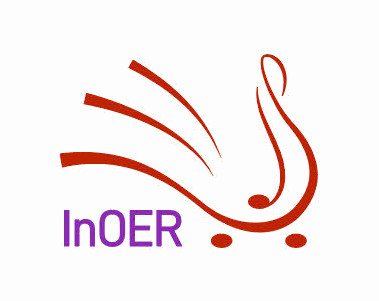 Dự án DIAMAS đưa ra Khuyến nghị và Hướng dẫn Truy cập Mở Kim cương
Dự án DIAMAS đưa ra Khuyến nghị và Hướng dẫn Truy cập Mở Kim cương
 50 công cụ AI tốt nhất cho năm 2025 (Đã thử và kiểm nghiệm) - Trợ lý AI tốt nhất (chatbots)
50 công cụ AI tốt nhất cho năm 2025 (Đã thử và kiểm nghiệm) - Trợ lý AI tốt nhất (chatbots)
 Hướng dẫn kỹ thuật lời nhắc. Kỹ thuật viết lời nhắc. Lời nhắc Tái Hành động (ReAct)
Hướng dẫn kỹ thuật lời nhắc. Kỹ thuật viết lời nhắc. Lời nhắc Tái Hành động (ReAct)
 50 công cụ AI tốt nhất cho năm 2025 (Đã thử và kiểm nghiệm) - Trình tạo nhạc AI tốt nhất
50 công cụ AI tốt nhất cho năm 2025 (Đã thử và kiểm nghiệm) - Trình tạo nhạc AI tốt nhất
 Vì sao Singapore đang xây dựng hàng hóa công cộng kỹ thuật số
Vì sao Singapore đang xây dựng hàng hóa công cộng kỹ thuật số
 Nâng cao tính mở và khả năng sử dụng của Hàng hóa Công cộng Kỹ thuật số bằng cách chỉ chấp nhận các bộ sưu tập nội dung và bộ dữ liệu hoàn toàn được cấp phép mở
Nâng cao tính mở và khả năng sử dụng của Hàng hóa Công cộng Kỹ thuật số bằng cách chỉ chấp nhận các bộ sưu tập nội dung và bộ dữ liệu hoàn toàn được cấp phép mở
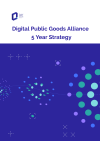 Chiến lược 2023-2028 của DPGA
Chiến lược 2023-2028 của DPGA
 50 công cụ AI tốt nhất cho năm 2025 (Đã thử và kiểm nghiệm) - Công cụ AI quản lý kiến thức tốt nhất
50 công cụ AI tốt nhất cho năm 2025 (Đã thử và kiểm nghiệm) - Công cụ AI quản lý kiến thức tốt nhất
 Hướng dẫn nghiên cứu của khoa về ChatGPT và các công cụ AI
Hướng dẫn nghiên cứu của khoa về ChatGPT và các công cụ AI
 Hàng hóa công cộng kỹ thuật số có thể giúp mở khóa tiềm năng lợi ích công cộng của AI như thế nào
Hàng hóa công cộng kỹ thuật số có thể giúp mở khóa tiềm năng lợi ích công cộng của AI như thế nào